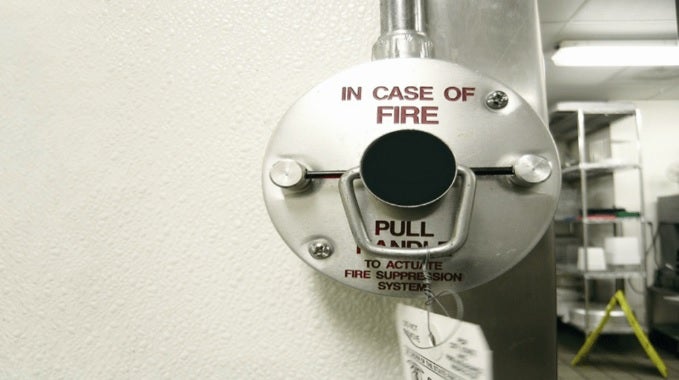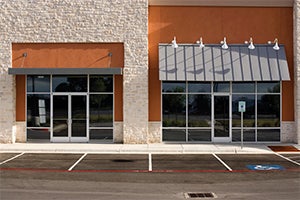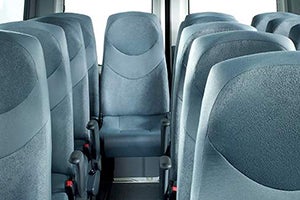Education and training
Addressing your safety gaps is important, but learning how to address those gaps carefully and thoroughly is crucial to getting the tangible results you need to help mitigate risk.
Hanover Risk Solutions experts have designed and researched education and training programs that are brief enough to fit your busy schedules yet comprehensive enough to keep you up to date and prepared to maintain your safety programs and help reduce your risk of loss.

The Hanover Driver Safety Advantage
Offers driver safety training courses addressing the challenges most commonly encountered by fleet programs. Hanover policyholders can sign-in or register to take advantage of this program.

Organizational Fleet Safety
Learn the nine steps to creating a safer fleet with this e-learning course.

Applicant screening
Assists any employee involved in screening and hiring employees and volunteers working with vulnerable persons in building a thorough employee screening process that evaluates each candidate’s ability to keep clients safe.

Bullying Prevention
Supports adults working with children in their efforts to prevent bullying by describing bullying and its impacts and consequences and identifying effective methods of responding to and preventing bullying.

Child Protection Part I: Child Abuse and Neglect
Helps participants learn the basics of child abuse prevention: how to recognize child abuse and neglect and all its forms, identify the potential effects on the children they care for, and understand the scope of this tragedy.

Child Protection Part II: Prevention and Response Strategies
Aids participants in building a child abuse prevention strategy and helps employees and employers to identify their responsibilities, construct safe environments, and respond to allegations.

Mandated Reporter Responsibilities
Assists employees and volunteers in recognizing their mandated reporter responsibilities and outlines the penalties and protection for workers who are in contact with those who are abused or neglected, and the stressors they face.

Preventing Abuse of Elders
Gives participants the tools they need to recognize the signs of elder abuse as well as understand the scope of abuse in elder populations, and help those in charge begin to develop plans to address abuse and neglect when they’re discovered.

For industry
Course I – The fundamentals
Learn about the hard and soft costs of EPL claims, the types of discrimination, the statutes that protect against different types of discrimination and the most common types of claims.
Course II – Policies & procedures, the managers role
This course will help identify key institutional policies and procedures, list different forms of communications to help employees understand and describe talent management strategies.
Course III – Common complaints and prevention strategies
Learn to identify the most common employment practices that cause employee complaints and understand how to address each of these practices legally and effectively.
Course IV – Addressing a complaint
Learn the appropriate steps to follow when a harassment or discrimination complaint is filed and understand how to prevent retaliation claims stemming from the complaint process.

For educational institutions
Course I – The fundamentals
Learn about the hard and soft costs of EPL claims, the types of discrimination, the statutes that protect against different types of discrimination and the most common types of claims.
Course II – Policies and procedures, the managers role
This course will help identify key institutional policies and procedures, list different forms of communications to help employees understand and describe talent management strategies.
Course III – Common complaints and prevention strategies
Learn to identify the most common employment practices that cause employee complaints and understand how to address each of these practices legally and effectively.
Course IV – Addressing a complaint
Learn the appropriate steps to follow when a harassment or discrimination complaint is filed and understand how to prevent retaliation claims stemming from the complaint process.

Assess Your Electrical Preventive Maintenance
Regular maintenance is key to preventing problems in your electrical system. Take this short assessment for insight into what your system needs to maintain its reliability

Electrical Preventive Maintenance
Costly electrical fires as well as system shut-downs can be costly, but are preventable. Electrical Preventive Maintenance outlines possible problem areas and methods of evaluating them to help head off problems before they result in fires or impact production.

Equipment Operations Efficiency for Small Businesses
Improving efficiency of heating, cooling, lighting, ventilation, cooking and electrical systems can help small businesses save money, reduce environmental impacts, increase security and safety and decrease liability. This training from our RS Partner, Hartford Steam Boiler, contains helpful hints to improve efficiency.

Equipment Operations Efficiency for Religious Institutions
Improving efficiency of heating, cooling, lighting, ventilation, cooking and electrical systems can help religious institutions save money, reduce environmental impacts, increase security and safety and decrease liability. This training from our RS Partner, Hartford Steam Boiler, contains helpful hints to improve efficiency.

Freeze Prevention
Help keep your fire protection sprinkler systems from freezing in winter with this course.

Equipment Operations Efficiency for K-12 Schools
Improving efficiency of heating, cooling, lighting, ventilation, cooking and electrical systems can help schools save money, reduce environmental impacts, increase security and safety and decrease liability. This training from our RS Partner, Hartford Steam Boiler, contains helpful hints to improve efficiency.
The Hanover Safe Driving Decisions Series presents three modules with real-life scenarios to help those who are responsible for the safe transport of others to reflect on their driving decisions and how they affect those they transport, the families of those passengers, their co-workers, the organization and management.

Module 2
Scenarios include driving decisions facing direct care workers and residential case managers.

Module 3
Scenarios include driving decisions facing school bus drivers and school administrators.

The Hanover Driver Safety Advantage
Offers driver safety training courses addressing the challenges most commonly encountered by fleet programs. Hanover policyholders can sign-in or register to take advantage of this program.

Organizational Fleet Safety
Learn the nine steps to creating a safer fleet with this e-learning course.
External links




